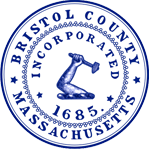How does the Homestead declaration help protect a home against unsecured creditors in bankruptcy proceedings?
Remember that the homestead declaration protects a homeowner only from unsecured creditors. It will not offer protection from first or second mortgage lenders and/or equity lenders who possess a security interest in a home. If payments are not current on these types of secured credit, a homeowner runs the risk of losing the home to foreclosure proceedings.
In a Chapter 7 bankruptcy, or asset liquidation proceeding, a homeowner is allowed to claim certain exemptions which function as asset protection allowances. If a homestead declaration is in place, and the state homestead exemptions are claimed, a homeowner would be allowed to retain a much greater portion of the proceeds from a liquidations sale of the home than s/he would be allowed to keep under federal bankruptcy law exemptions. This factor in turn decreases, or perhaps even eliminates, the possibility that the homeowner would be required to sell his/her home as part of Chapter 7 proceedings.
In all Chapter 13 bankruptcy proceedings, the court will require a homeowner to repay some or all of the unsecured debt over a three- to five-year period. You will be required to repay a percentage of that debt at least equal to that which the unsecured creditors would receive were a homeowner required to proceed under Chapter 7 liquidation regulations. By increasing the amount of the home’s exemption, the homestead declaration decreases the proceeds which would become available for repaying unsecured creditors through the Chapter 7 alternative. This may decrease the percentage of the unsecured debt the homeowner would be required to repay through a Chapter 13 proposal.


